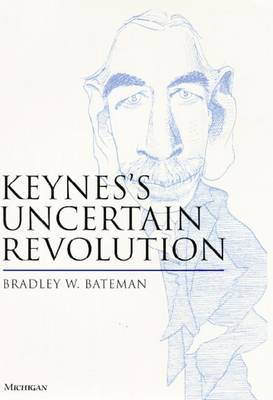This book tells the story of Maynard Keynes's concern with probability and uncertainty. Economists have been interested in the possible connection between the ideas in the 1921 Treatise of Probability and the 1936 General Theory of Money, Interest and Employment. But Bradley Bateman makes a unique contribution by asking where Keynes's ideas come from. Based on a careful exploration of the full historical context of Keynes's work, looking both at the background of his early philosophical work and at his extensive policy-making during the Inter War period, Bateman concludes that no easy connection between Probability and The General Theory can be made. Indeed, during much of the time that he was writing The General Theory, Keynes was arguing strongly in his policy making against the importance of uncertainty in economic theory. It is only in his understanding of contemporary financial markets and his arguments over appropriate policies to control them that the full story of his interest in probability and uncertainty can be found. Keynes's Uncertain Revolution will be of interest to political historians and scientists, philosophers, historians of science, and economists. Bateman shows the rich diversity of influences on Keynes's thought and argues for the importance of seeing the development of economic doctrine in historical context. Bradley Bateman is Associate Professor at Grinnell College, where he teaches writing and economics.
- ISBN10 0472107089
- ISBN13 9780472107087
- Publish Date 19 February 2018
- Publish Status Out of Print
- Out of Print 2 October 2008
- Publish Country US
- Imprint The University of Michigan Press
- Format Hardcover
- Pages 200
- Language English
